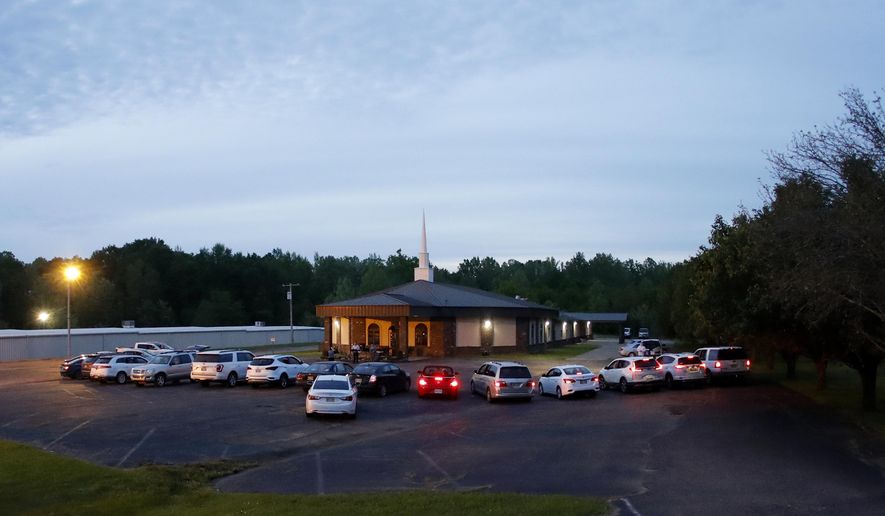A federal judge has affirmed the right of a Pentecostal church in Mississippi to worship without fear of being shut down again or threatened by local police, allowing the congregation to hold drive-in services beginning Sunday.
In a federal lawsuit filed by the conservative legal group, Thomas More Society, on behalf of the First Pentecostal Church of Holly Springs, U.S. District Judge Michael P. Mills issued the order against the city of Holly Springs, whose officers disrupted and shut down a midweek Bible study, 10 days after disrupting the congregation’s Easter worship service and issuing its pastor, Jerry Waldrop, a citation.
“These were outrageous violations of these parishioners’ rights,” the group’s Senior Counsel Stephen Crampton said in a statement. “On both occasions, Holly Springs law enforcement personnel ignored the fact that all church members present were practicing social distancing and complying with all applicable health requirements.”
Crampton continued, “Bible study attendees were threatened with criminal citations for violation of Holly Springs’ stay home order. Due to the threats and the citation of pastor Waldrop, the church members were fearful of holding services on Sunday and exercising their constitutionally protected rights.”
While the statewide stay home order classes “religious entities including religious and faith-based facilities’ as essential businesses or operations,” the Holly Springs’ stay home order deemed churches nonessential, Crampton pointed out.
“Clearly, the state order preempts the municipal order, which was selectively and prejudicially enforced against the church,” he said. “The local Walmart store routinely houses gatherings of dozens and dozens of people, as does the Cash Savers store and the Dollar Tree store, yet Defendant has taken no action whatsoever against any of these entities.”
The lawsuit argued that the city of Holly Springs violated the church members’ rights to religious freedom, free speech, freedom to assemble, and rights of due process as constitutionally guaranteed under the First and 14th Amendments, and also claimed violation of the Mississippi Religious Freedom Restoration Act.
“Holly Springs made a rather poor decision to draft an ordinance which simply grouped ‘churches’ together with other ‘non-essential’ businesses such as ‘barber shops,’ ‘restaurants’ and ‘liquor stores,” Mills noted in his ruling. He added that the city’s “vague prohibition of ‘any gathering’” was “problematic.”
The order also stated that neither Holly Springs, nor its police force, would interfere with the church’s drive-in service on Sunday.

